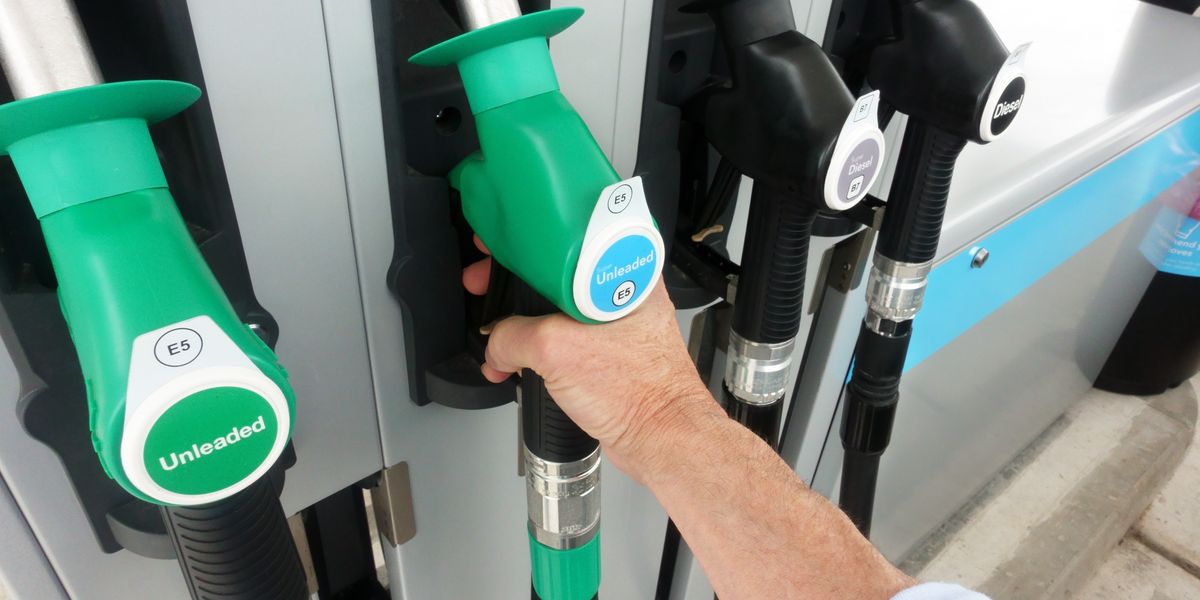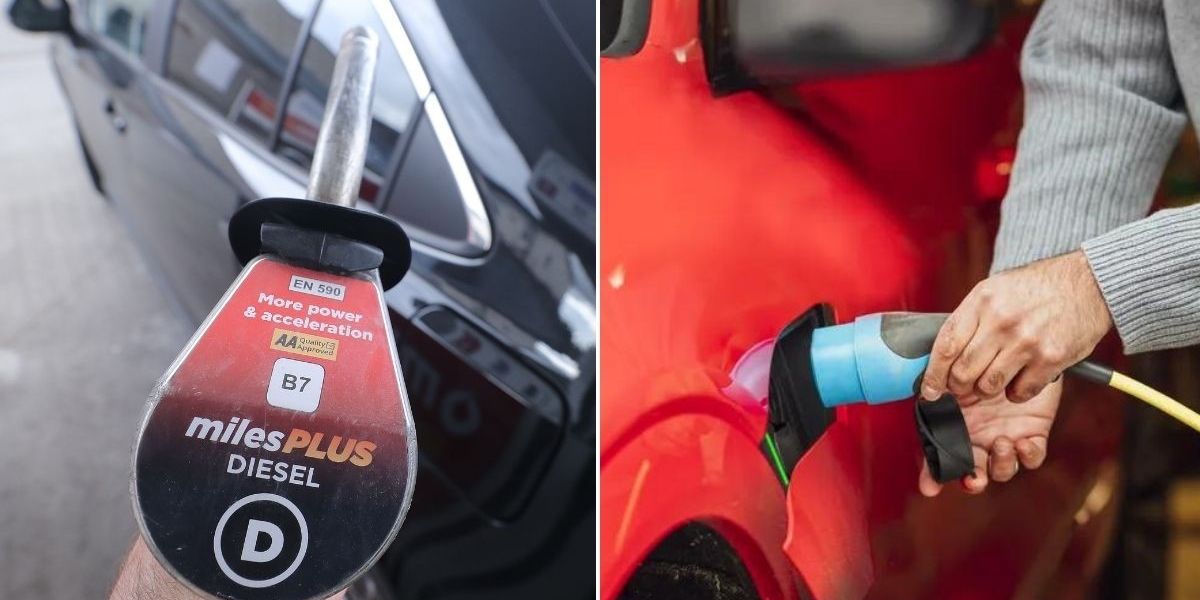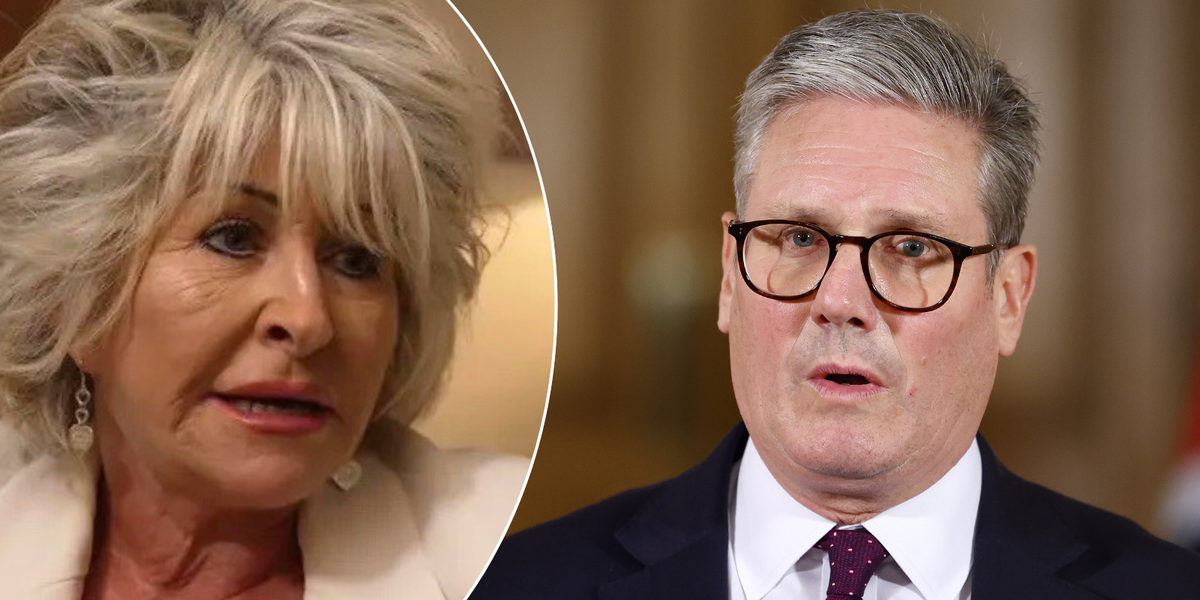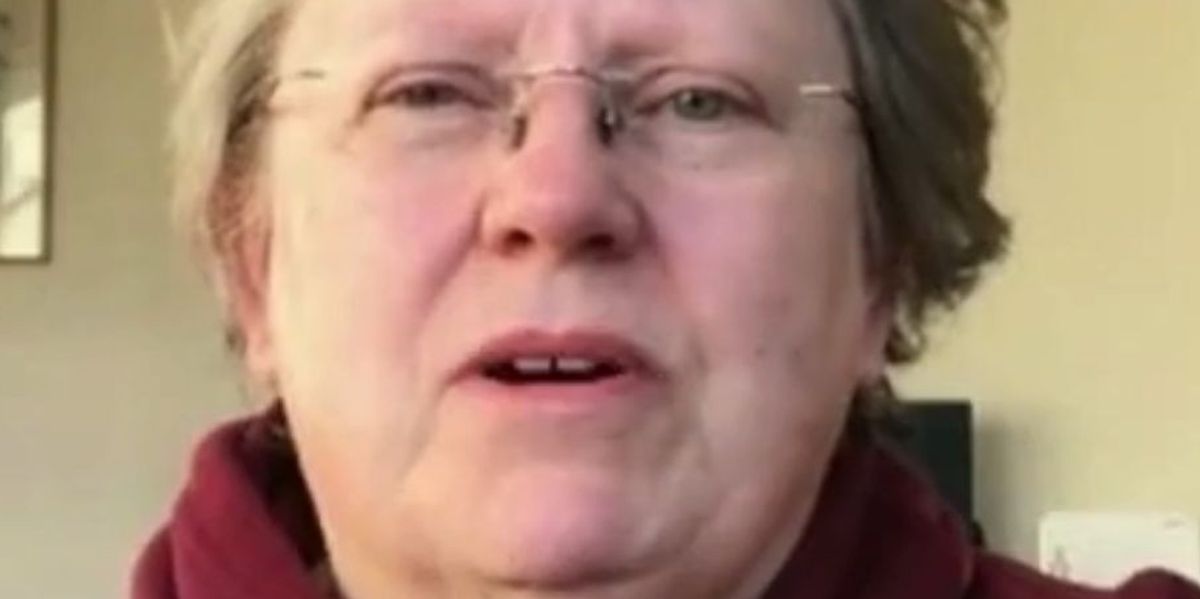Britons are being warned of new driving law changes set to be introduced over the course of the next year which could have enormous impacts on them.
With 2024 right around the corner, motorists will be looking to welcome in the year with new law changes, although not all of them will make motorists’ lives easier.
The previous year has seen the launch of a number of different rules designed to help drivers, slash emissions, cut motoring costs and even delay major net zero targets.
GB News has compiled a list of the most important driving law changes set to be introduced in the next 12 months, from electric cars to Low Emission Zones and number plate changes to expat warnings.
A number of EV changes will be introduced in 2024
PA
Electric cars
Despite delaying the ban on the sale of new petrol and diesel vehicles, the Prime Minister and the Government are keen to see the development of electric vehicles over the coming years.
This includes keeping costs down for manufacturers and drivers with a recent agreement between the UK and European Union to ensure tariffs are not immediately introduced which could have cost the sector more than £4billion.
The “rules of origin” would have seen tariffs of 10 per cent imposed on car sales between the UK and the EU if at least 45 per cent of the vehicle’s value did not originate in the two areas.
With the new delay, the 10 per cent tariff will only be introduced at the end of 2026, with both sides of the agreement praising the delay for supporting the massive manufacturing industries.
Britons will also see changes to how car brands sell vehicles, with the new Zero Emission Vehicle mandate instructing manufacturers on how many electric cars it must sell, with brands facing fines for missing targets worth £15,000 per car and £9,000 per van.
From 2024, minimum annual targets will require 22 per cent of new cars sold in 2024 to be zero emission, followed by 80 per cent of new cars in 2030 and 100 per cent in 2035.
While the Public Charge Point Regulations were introduced in November 2023, the Government gave a one-year deadline for many objectives including ensuring chargers have contactless payments, a helpline and a clear indication of how much it costs to use.
The main aim of the regulations is to ensure rapid charge points have a 99 per cent reliability rate measured as an average across each network. This will help drivers feel more confident when using public chargers and support the uptake of EVs.
Four new Low Emission Zones are set to begin enforcement
PA
Low Emission Zones
Aberdeen, Dundee and Edinburgh will all see enforcement of Low Emission Zones begin at the end of May and beginning of June, while residents living inside Glasgow’s LEZ will now be included under the terms of enforcement.
Drivers could face a fine of £60 inside the LEZ if their vehicle does not meet emissions standards, with fines doubling after each subsequent breach detected, with a cap of £480 for cars and LGVs, while buses and HGVs will have a £960 cap.
Grants of up to £3,000 are available to help drivers with the switch to cleaner vehicles, including a £2,000 incentive for households who ditch their polluting vehicle at a Scottish authorised treatment facility.
The person must live within 20km of one of Scotland’s LEZs and be in receipt of “specific means-tested benefits”, with further benefits available for other people living in Scotland.
The Spring Budget will take place in March
PA
Budget
The Government has announced that the 2024 Spring Budget will take place on March 6, potentially just months before a general election, with drivers having a keen eye on what the Chancellor announces.
There is expected to be an update on fuel duty. The 5p cut on the cost of fuel duty will run out towards the end of March with many calling on Jeremy Hunt to extend the measures or even increase the rate of the cut beyond five pence per litre.
Further clarity may also be seen on car tax changes – which are expected to increase in April – as well as any new guidance for electric cars, MOTs and other motoring measures.
LATEST DEVELOPMENTS:
Two new number plate identifiers will be rolled out next year
PA
Number plate changes
In keeping with tradition, new number plates will be unveiled at the two points in the year, with these changes being commonplace since 2001.
This will see the unveiling of the “24” plate in March and “74” in September, with “new reg day” expected to boost car sales.
Expat licences
From January 1, British expats living in Portugal will still be able to continue using their licence as residents if they meet certain requirements including being under 60, ensuring their licence has not expired and they are not disqualified from driving, in addition to others.
People who do not meet all of these requirements must start the process of exchanging their licence by the end of March 2024 to stay on the roads, with the Government urging people to act as soon as possible.
An update on IDPs is expected within the coming weeks
PA
DVLA services
A new contract will begin on April 1, 2024, between the DVLA and Post Office to allow branches around the country to continue offering drivers the ability to tax a vehicle or renew a 10-year photocard driving licence.
The initial contract will last for one year with the potential for two further one-year extensions.
This could have had disastrous consequences for elderly drivers who may rely on the Post Office to stay on the road as they may not have access to the DVLA’s online services.
International Driving Permits
Following the agreement between the DVLA and Post Office, GOV.UK states that branches can issue International Driving Permits (IDPs) until March 31, 2024.
IDPs are not included in the new contract, with both parties negotiating on the future of these measures, with an outcome expected in January 2024.
Electric scooter trials are to continue into 2024
PA
E-scooter trials
The Government has extended the deadline for electric scooter trials around the UK until May 31, 2024, which will allow further analysis and evidence to be collected.
Trials were originally meant to end in March 2022, but were extended following a slower start as a result of the COVID-19 pandemic. A further extension was granted in November 2022 after updated safety guidance was issued.
HGV safety measures
Transport for London (TfL) has confirmed that from October 28, 2024, HGVs over 12 tonnes will be required to have a three-star rating or fit a Progressive Safe System (PSS) of vehicle safety measures to operate in the capital.
The update to the HGV Safety Permit Scheme aims to slash the number of accidents, serious injuries and deaths on Greater London’s road network.
Christina Calderato, TfL’s Director of Transport Strategy and Policy, said: “We are determined to make roads safer for everyone and are committed to Vision Zero, the Mayor’s goal to eliminate death and serious injury from the transport network.”









